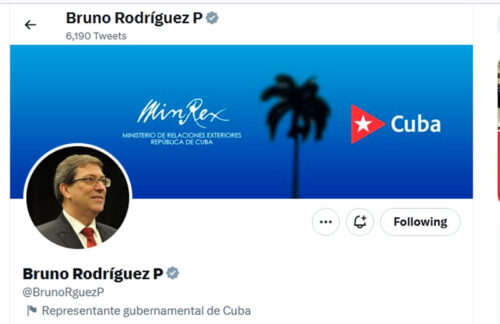From his Twitter profile, the Cuban FM described these comments as unacceptable as meddling and misleading, and stated that Cuba has little or nothing to learn from the archaic and elitist US system, where money rules and two political parties take turns in government from the same minority.
Last Friday, the Undersecretary of the US State Department for Latin America, Brian Nichols, questioned on that social network about the democratic nature of the elections held this Sunday in Cuba to elect the 470 deputies to the National Assembly of People’s Power (ANPP, parliament).
Voting had the participation of 75.92 percent of the eight million 120 thousand voters summoned to the polls, which was described by President Miguel Díaz-Canel as a revolutionary victory of the Cuban people.
According to the National Electoral Council (CEN), the election of all the candidates proposed to integrate the X Legislature of the ANPP, as well as voter turnout, was higher than recent previous elections, and was carried out with order and transparency.
Compared to the referendum on the Family Code, this result is 1.8 percent higher and 7.36 percent more than in the municipal elections, explained the president of the CEN, Alina Balseiro.
The current electoral process will conclude on April 19 with the constitution of Parliament, the election of its board of directors, the Council of State, and the President and Vice President of the Republic.
ef/jcm/evm










